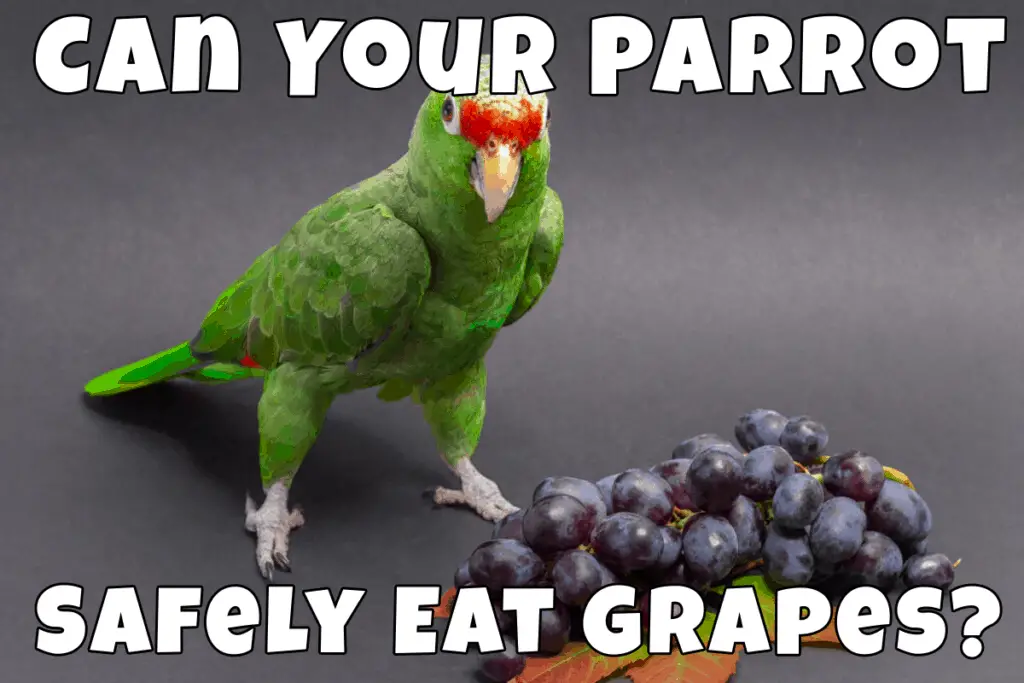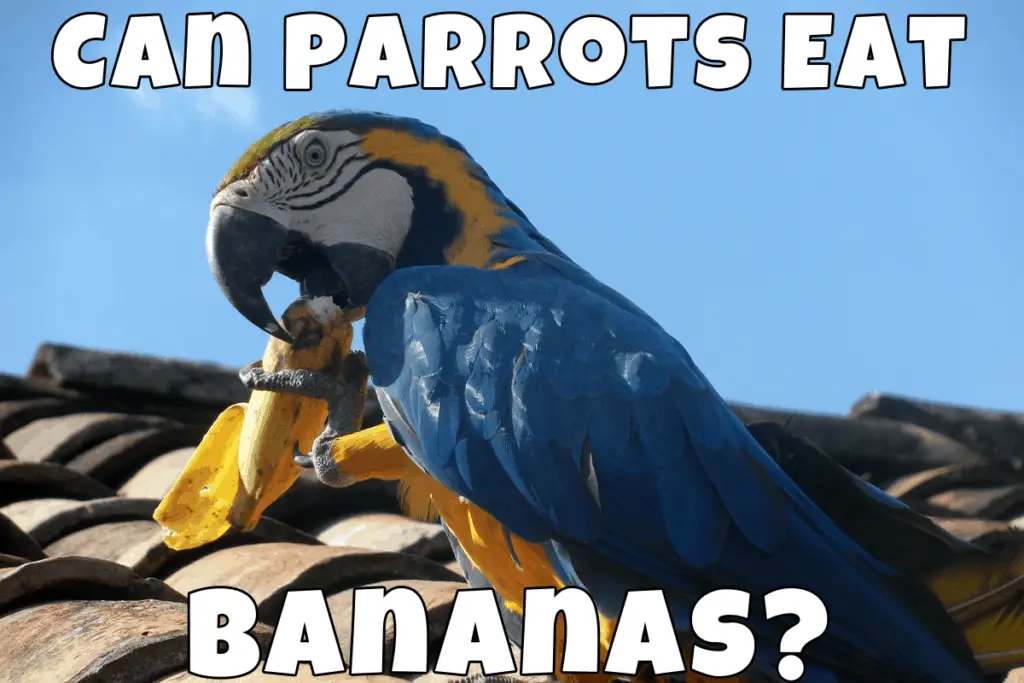Everyone loves rice because it is a healthy and tasty addition to any meal in your diet. Rice is an excellent side dish to chicken, beef, and fish. It makes your soup more nutritious and satisfies the appetite of vegetarians when you add vegetables to it. There are many types of rice and methods of its preparation, as well as beneficial properties for the human body.
What about the birds? They say that it is strictly forbidden to give rice to birds because it can harm them. Probably, rice in the stomach of birds increases in volume and even “explodes” and can threaten their life. However, is this true or fiction? Can you give your parrot some rice? Let’s figure it out together!
In short, the rice will not harm your parrot, and they can eat it. The myth that rice swells in a bird’s stomach is not true, so you shouldn’t believe it. In the wild, birds often eat rice during migration, and it only brings them beneficial properties. So if someone advises you not to feed the birds with rice, you can safely deny this statement.
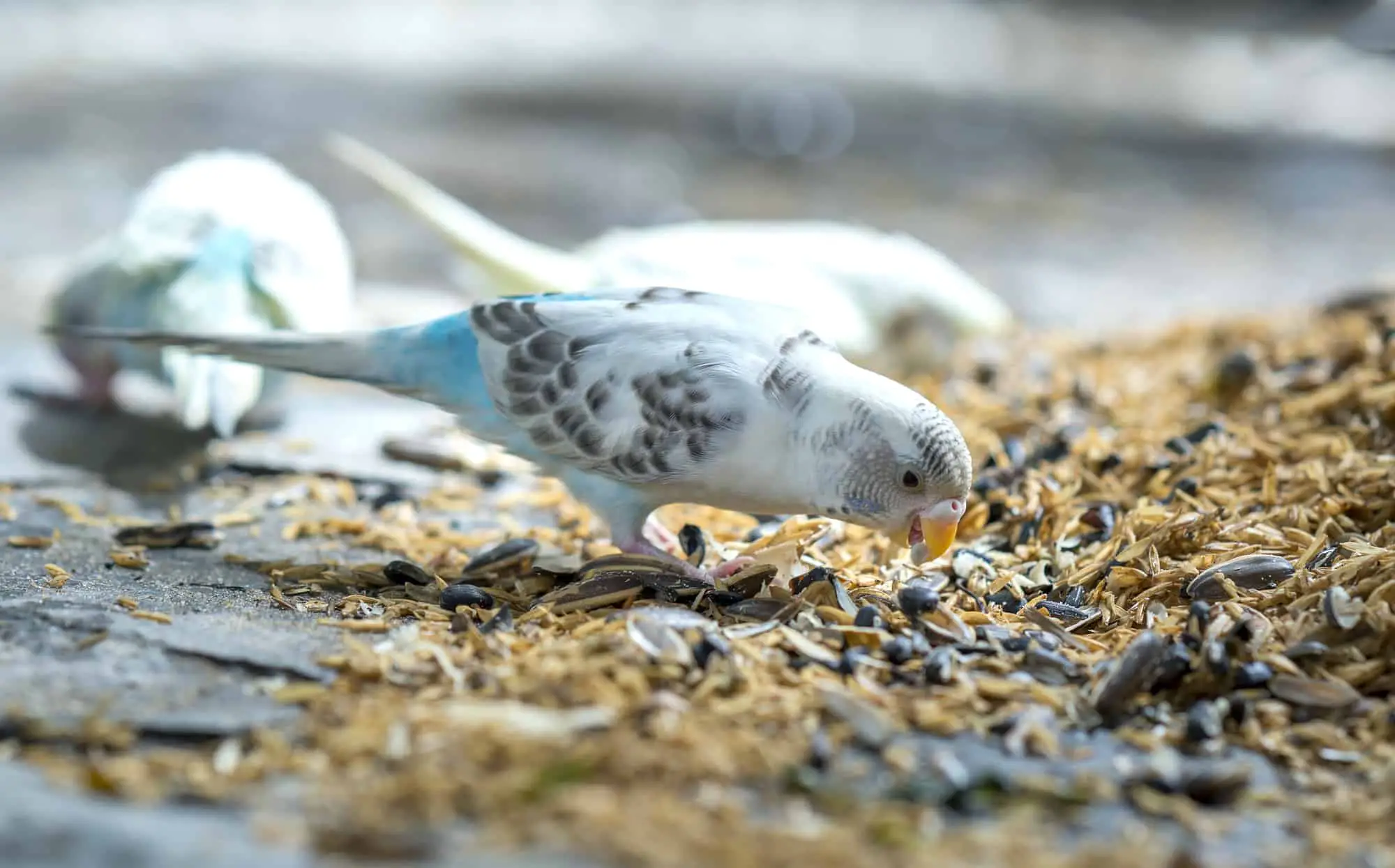
However, if we have already figured out the possibility for parrots to eat rice, then a positive answer raises many additional questions. What are the benefits of eating rice for your parrot? What useful elements does it contain? What kind of rice should you choose for your bird? Should you give it to the bird raw, cook it, and in what ways? What amount of rice is safe for your parrot?
In this article, I will answer all of your questions that are important for feeding your parrot. Keep reading to find out more!
Are Artichokes Safe for Parrots to Eat?
Is Rice Good for Parrots?
Yes, rice has many health benefits for your bird. The valuable substances it contains will supplement your pet’s diet and help maintain health for a long time. Rice is a source of complex carbohydrates, essential amino acids, vitamins, and trace elements. Let’s take a closer look at the nutrients it contains.
Niacin
This substance helps your bird to reduce the risk of arthritis and other joint diseases. Niacin has also been shown to reduce the risk of diabetes and eye problems such as cataracts in birds.
Thiamine
Thiamine supports the health of the bird’s nervous system, helps muscles and the digestive system to function well. It helps your bird maintain a healthy metabolism while avoiding weight gain or unhealthy weight loss.
Magnesium
Magnesium supports the health of the parrot’s nervous system, improves recovery from exertion, and supports the health of the cardiovascular system and metabolism. It is also involved in building strong bones, claws, and beaks in birds.
Riboflavin
Riboflavin is a great source of energy for your bird. It helps the parrot stay active and cheerful, supporting the health of the respiratory system and the immune system by increasing the production of antibodies and red blood cells.
Iron
As in humans, in parrots, iron contributes to the proper functioning of the circulatory system and prevents the development of anemia. It helps the bird produce adequate hemoglobin and also maintains healthy pigmentation in your bird’s feathers.
Manganese
Birds need manganese for the healthy growth and functioning of all systems. It also supports reproductive health by allowing birds to produce strong babies and avoid disease.
Protein
Protein is one of the most important nutrients for your bird. It is responsible for many systems, such as the muscles of the body and the heart system. It forms healthy feathers and helps to improve the heat regulation of the bird.
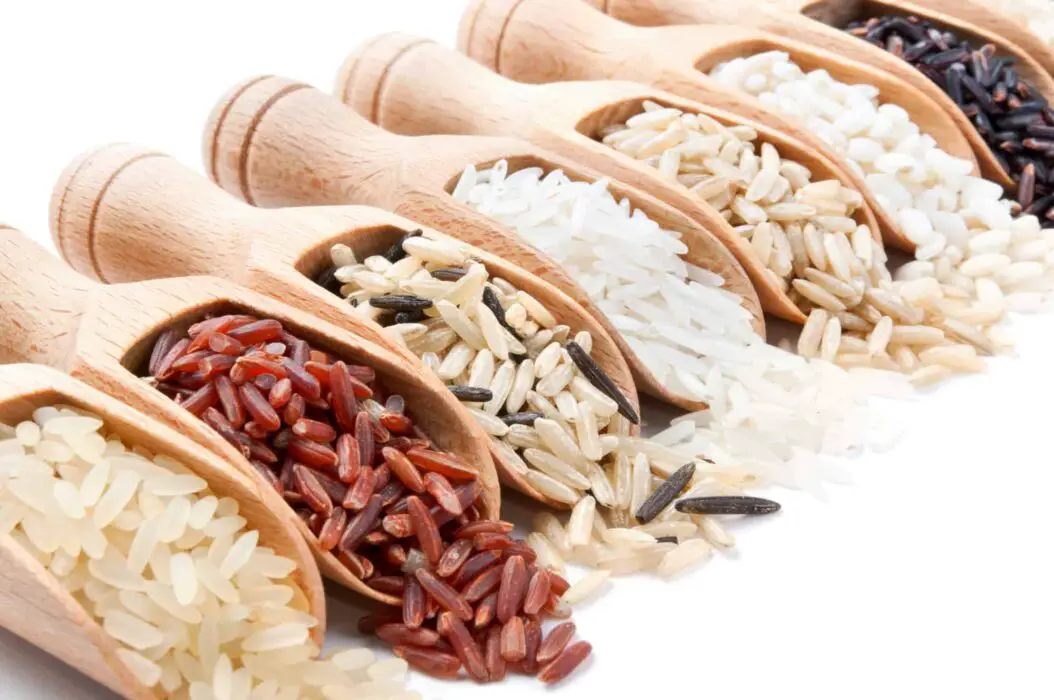
What are the Disadvantages of Eating Rice for Your Parrot?
Alas, there are disadvantages of rice for your parrot, despite the great benefits. In common, rice is safe for your bird, but it has a large excess of carbohydrates. One cup of cooked rice contains 45.8-54.3 grams of carbohydrates, depending on the type of rice.
Carbohydrates can benefit your parrot in small amounts by providing the bird with the energy it needs. Carbs can nourish the brain and body of all animals, including humans. And birds are no exception. Without carbohydrates, they simply cannot function fully.
But in all components of the bird’s diet, there must be balance and reasonable limits. A low level of carbohydrates will be good for your parrot, while an excess can do serious harm.
An excess of carbs in one meal is unlikely to cause discomfort and harm to your pet, although it is possible that the bird will get indigestion, stomach pain, and problems with poop. However, regular overeating of carbohydrates can cause obesity in birds, and, as you know, this condition is fraught with various health problems and even serious diseases.
To summarize, in general, we can say that rice does not pose a danger to your bird when eaten in moderation, but it can harm your pet in case of overeating. So let’s find out how much rice your parrot can eat without harm to health. I will not talk about a specific amount because it depends on the type and size of your bird.
However, based on general guidelines, I can say that grains should make up 20 to 30% of your bird’s diet. However, the grain diet of a parrot should be varied and not consist of rice only. Add a variety of nutritious cereals to your bird’s diet, such as buckwheat, quinoa, barley, lentils, and more.
Can Parakeets Overeat? Beware the Dangers
Should You Cook Rice for Your Parrot?
If your parrot is healthy and active, then both raw rice and cooked rice are safe for them. Indeed, in the wild, parrots do not have kitchen utensils and an oven to boil rice, and all the grains that birds eat are raw. It also applies to rice.
However, it is worth considering the preferences and character of the bird. Of course, domestic parrots live in more comfortable conditions than their wild relatives. Even though they cannot cook their own delicious food, they have people who will do everything for them. So, you need to understand that if your parrot tries cooked rice at least once, they might refuse to eat raw rice in the future. Compared to cooked rice, parrots find raw grains boring.
If you are the owner of a small parrot, then you need to know that small birds should not eat raw rice, as it is difficult for them to swallow it and then digest it properly. You can either avoid dry mixes with raw rice or grind them into small pieces to make it easier for your bird. However, remember that for a small parrot, the amount of rice should be lower, so keep an eye on your pet’s diet.
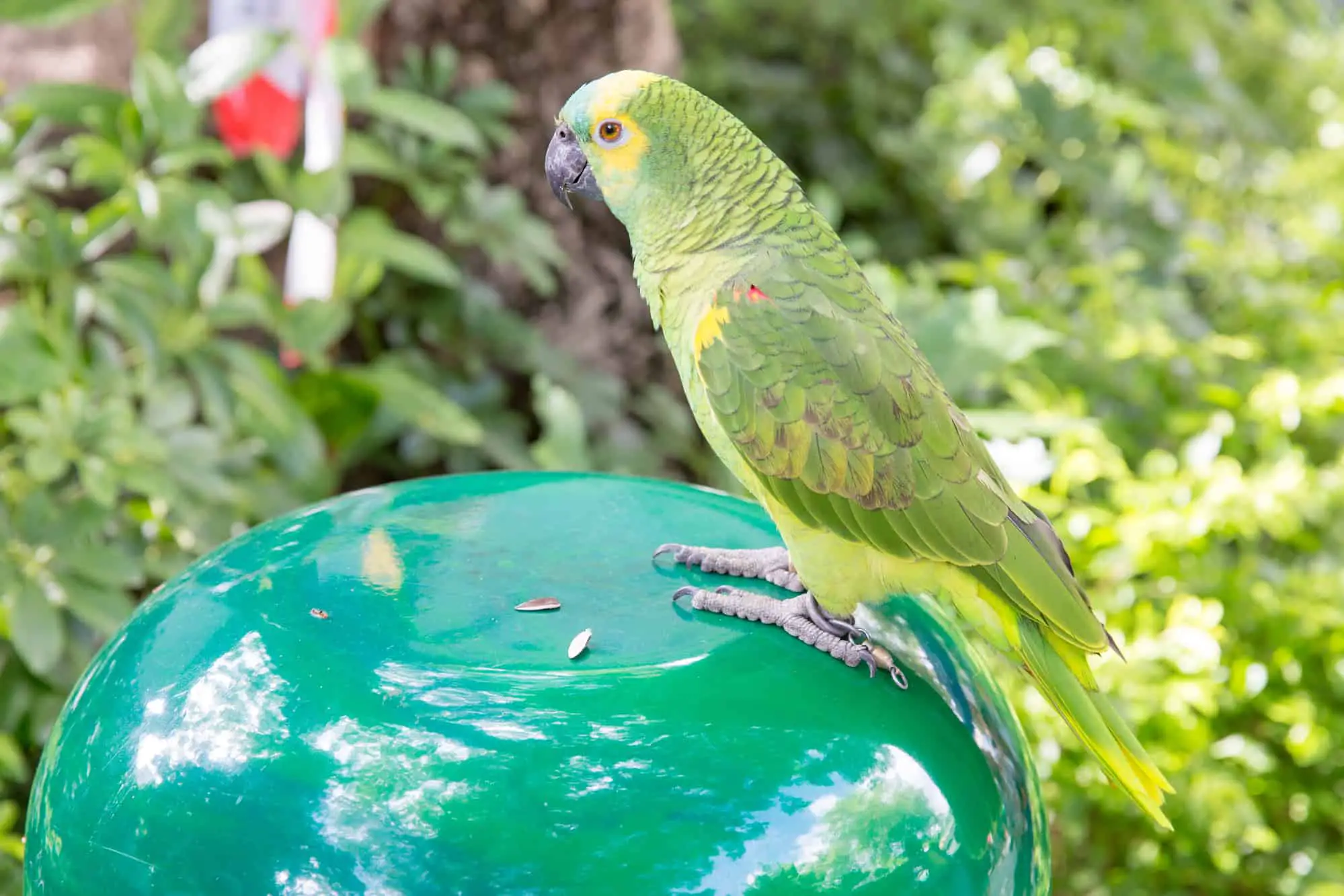
How to Cook Rice for Your Parrot?
The best way to cook rice for your parrot is to boil it, avoiding any flavoring additives. Do not add salt, spices, sauces, or any other additives. Most of the flavor enhancers that people add to make delicious rice are very harmful to your bird and can be hazardous to their health. Therefore, if the parrot wants to try rice from your plate, do not let them do it.
You can mix rice with vegetables, nuts, seeds, fruits, and other grains. Try a blend of rice, carrots, seeds, and corn. This meal will satisfy your pet and please them due to the variety of tastes.
Brown or White – Which Rice to Choose for a Parrot?
For your bird’s diet, both white and brown (as well as other types) rice will be healthy and safe. However, brown rice contains slightly more nutrients and is considered a more nutritious option.
When cooking white rice, the raw material is usually stripped of germ and bran, which is the most nutritious part for your parrot. At the same time, brown rice retains all of these elements and has a higher nutritional value, both raw and cooked.
Can Parrots Eat Fried Rice?
In this case, the answer is unequivocal – no. Fried rice is cooked with some flavor enhancers, and one of them is soy sauce, which contains a lot of salt. And that means a lot of sodium. And while your bird can safely digest the small amounts of sodium that they accidentally ingest in their food, large amounts of salt can be very dangerous for the parrot.
Parrots cannot remove salt as well as humans. Too much sodium can lead to serious illness and even death. Salt provokes the hardening of the arteries and various problems of the cardiovascular system. Therefore, while fried rice itself is not harmful to parrots, all additives and flavor enhancers can harm your bird.
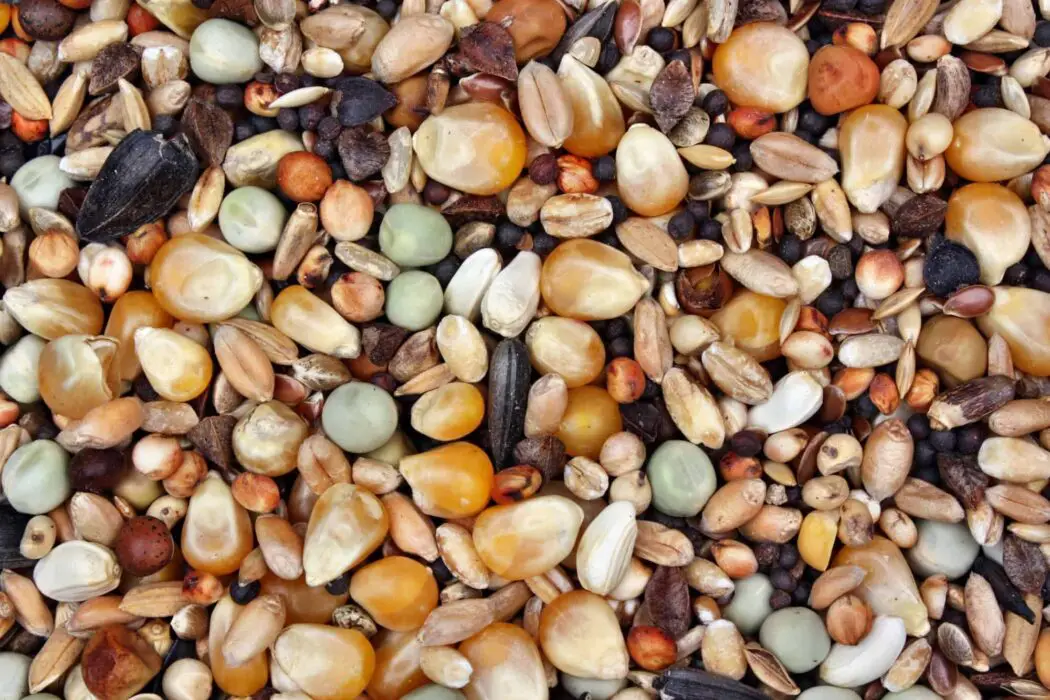
Can Parrots Eat French Fries? Healthy Ways to Cook It for Your Bird
Can Parrots Eat Rice Flour?
In short, yes, parrots can eat rice flour because this is rice crushed into powder, which is generally safe for birds. However, it is important to note that this applies to rice flour that you make yourself and do not buy in the store. This way, you can be sure that it is free of various additives and preservatives that can harm your bird.
If you are using rice flour for a variety of dishes, make sure all other ingredients are also parrot-safe. You can let your pet try these dishes as long as they do not contain anything harmful. Or just let the parrot try some rice flour if they are interested in it. Rice flour can also be a good option for small parrots who have problems swallowing and digesting whole rice grains.
Conclusion
Almost all types of rice are safe for parrots. You can add white rice, brown rice, basmati, arborio, jasmine rice to your bird’s diet. Add rice to vegetables and fruits, give you parrot boiled or raw rice. The main thing is not to use various additives, preservatives, and flavor enhancers that can harm your pet’s health.
You should also avoid adding salt, which can damage your parrot’s cardiovascular system. Use only simple rice, boiled or uncooked, and avoid fried one. Combine it with vegetables, fruits, seeds, and nuts to pamper your parrot with a tasty and healthy mixture

